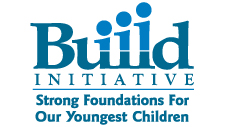Featured Sessions - All Wednesday May 7th
10:00-Noon
Groundbreaking Research into Advocacy: Getting the Facts to the Public
What happens when you provide young children with quality early education AND ongoing health care? Forty years after the groundbreaking Abecedarian program, we have answers. Nobel Laureate James Heckman, the man who broke new ground with his research demonstrating the economic value of investing in early childhood education, has just released new research showing that comprehensive early child development programs have the power to prevent adult hypertension, metabolic syndrome, obesity and diabetes. Rich Neimand, Professor Heckman's communications partner, will share these latest findings and discuss how to integrate them into our advocacy efforts.
Session Handout
Presenter:
Rich Neimand
Rich Neimand is President/Creative Director of Neimand Collaborative and works at the confluence of politics, policy and consumerism to create social and economic change. He has built a successful career on his ability to synthesize disparate information into clear, concise and compelling persuasion. A graduate in English from UCLA, Rich was pummeled by semioticians and structuralists long before the notion of seizing issues by seizing the language used to describe them became fashionable. He has spent much of his subsequent career helping people gain power by gaining control over words and images. He develops messages that tap into attitudes, touch shared values and unite different audiences around common objectives. Rich is skilled in branding, strategic message and creative development, naming and renaming—and in providing solutions to change seemingly intractable public perceptions. Steeped in issues such as early childhood development, health care, education, conservation, financial inclusion and human rights, Rich's clients have included the First Five Years Fund, AdvaMed, the American Heart Association, Nobel Prize laureate economist James Heckman, MasterCard, the Pancreatic Cancer Action Network, ClimateWorks, National Health Council, America’s Essential Hospitals, the William & Flora Hewlett Foundation, the Nature Conservancy, the Robert Wood Johnson Foundation, the United Nations Development Programme, the Bill & Melinda Gates Foundation and a host of public campaigns and causes.
Moderator - Tracy Zimmerman
Director of Strategic Communications for the North Carolina Early Childhood Foundation. Tracy has more than 20 years of experience working on behalf of nonprofit, public interest organizations. Prior to joining NCECF, she led The North Carolina Partnership for Children’s (NCPC) communications efforts, most recently as the Public Engagement Director. In this capacity she served as part of a four-member team, led by NCPC’s President, that provided strategic direction for the organization. As part of her engagement efforts, Tracy crafted and obtained funding for the First 2,000 Days campaign. Early Childhood blogger Paul Nyhan called the effort “a model for early learning in the age of social media.”
Prior to joining NCPC, Tracy served as the Public Relations Director at FPG Child Development Institute at UNC. She previously served as Senior Vice President at The Hauser Group, a Washington DC-based public relations firm working on behalf of nonprofit organizations and public interest causes. While there she created an award-winning public health campaign on infertility prevention for the American Society for Reproductive Medicine that led to a cover story in Newsweek and appearances on the Today Show, CNN, and 60 Minutes; and developed the press strategy for the first legal challenge to teaching “intelligent design,” and created a national discussion on school governance for the Education Commission of the States.
Session Handout #1
Session Handout #2
Session Handout #3
Kathryn Hirsch-Pasek is the Stanley and Debra Lefkowitz Faculty Fellow in the Department of Psychology at Temple University where she serves as Director of the Infant Language Laboratory. She is the recipient of the American Psychological Association’s Bronfenbrenner Award for Lifetime Contribution to Developmental Psychology in the Service of Science and Society as well as the American Psychological Association’s American Psychological Association Award for Distinguished Service to Psychological Science, the Great Teacher and the Eberman Research Awards. Kathy received her bachelor’s degree from the University of Pittsburgh and her Ph.D. at University of Pennsylvania. Her research in the areas of early language development and infant cognition has been funded by the National Science Foundation and the National Institutes of Health and Human Development resulting in 11 books and over 150 publications. She is a Fellow of the American Psychological Association and the American Psychological Society, served as the Associate Editor of Child Development and as treasurer and is on the governing board of the International Association for Infant Studies. Her book, Einstein Never used Flashcards: How children really learn and why they need to play more and memorize less, (Rodale Books) won the prestigious Books for Better Life Award as the best psychology book in 2003.
Albert Wat
Albert Wat from the Education Division of the National Governors Association Center for Best Practices Albert Wat is a Senior Policy Analyst in the Education Division of the National Governors Association Center for Best Practices, where he works on early childhood education issues, from birth through third grade. Most recently, his work has focused on policies regarding literacy, data systems, learning standards, assessments, and alignment between early learning policies and practices and education reform initiatives, especially those in the early elementary years. Before joining the NGA, he was the Research Manager at Pre-K Now, an advocacy campaign at the Pew Center on the States, where he authored a number of policy reports, managed research activities for the initiative, and provided analysis and information about the latest pre-k and early education research and policy developments to Pre-K Now staff and its network of state partners. Albert began his career in education in schools and community-based organizations. He taught and worked in school reform nonprofits in the San Francisco Bay Area for four years before moving to Michigan and eventually, Washington DC, where he directed campus-based literacy organizations at the University of Michigan and Georgetown University, training college students to serve as literacy tutors to low-income children and families. Albert holds a bachelor’s degree in psychology and a master’s degree in education from Stanford University and a master’s in education policy from George Washington University.
Moderator - Carol M. Trivette
Carol Trivette received her doctorate degree in Child Development and Family Relations from the University of North Carolina at Greensboro. She is currently a Research Scientist and Co-Director of the Puckett Institute, which has offices in Morganton and Asheville, North Carolina. The Institute’s goal is to foster the adoption of evidence-based practices that builds on the capacities and strengths of children, parents and families, and practitioners.
For over 20 years, she has been engaged in applied research, evaluation, and practice related to early literacy development in young children with disabilities, the role of interests in child learning and development, help-giving relationships and family empowerment, and evidence-based early intervention and family support practices. For the last 6 years she was Co-Principal investigator on the Center for Early Literacy Learning (CELL) an Office of Special Education technical center that focus on promoting early language and literacy learning of young children ages 0 to 5 years old. This project focused her work on developing an evidence-based intervention model that supports the types of early learning experiences that are most likely to promote early literacy development in young children especially those children at-risk for delays or with disabilities.
Session Handout #1
Session Handout #2
Under her leadership from 2001 to 2004, the D.C. Children and Family Services Agency emerged from federal court receivership and markedly improved the lives of children in the District. Her book Reforming Child Welfare [2009] melds this experience with original research to recommend policy, practice, and leadership strategies to improve outcomes for very vulnerable children and their families.
During 2007, she oversaw the management of all state government agencies as New York's director of state operations. She was also director of programs and policy at the Children's Defense Fund (1991-1993), a lecturer in public policy at Harvard University's Kennedy School of Government at (1987-1991), and budget director of Massachusetts's Executive Office of Human Services (1983-1985). Ms. Golden holds a doctorate and a master's degree in public policy from the Kennedy School of Government at Harvard, where she earned a B.A. in philosophy and government.
Nisha Patel
Nisha has more than 15 years of experience developing, managing, and implementing philanthropic and policy initiatives to expand economic opportunities for low-income families in the U.S. Prior to joining the Aspen Institute in January 2011, Nisha was a program officer at the Bill & Melinda Gates Foundation, where she managed a $40 million portfolio focused on reducing inequity and increasing postsecondary success through community partnerships and policy development. In 2010, she received the Gates Foundation’s U.S. Program Colleague Recognition Award for Outstanding Portfolio Management.
Nisha received her B.A. from Vanderbilt University and holds an M.S.W. with a concentration in Social and Economic Development from Washington University in St. Louis, where she was a Bettie Schroth Johnson Scholar in Management. She is the co-founder and co-chair of the MASALA Giving Circle, a community-based philanthropic initiative in Washington, DC.
Laura Clark, M.A. Executive Director Renaissance West Community Initiative Laura Clark joined Renaissance West Community Initiative (RWCI) as executive director in April 2013. RWCI is leading the revitalization of a former housing project in west Charlotte. When completed, this $75M community will include 334 units of mixed-income housing, a cradle-to-career educational continuum, and wraparound services for children and families. The initiative is designed to break the cycle of intergenerational poverty by addressing the comprehensive needs of children and families.
Laura most recently served as Director of The Larry King Center at the Council for Children’s Rights, a non-profit child advocacy agency where she led research, planning, and public policy efforts to solve systemic problems that impact the community’s children. These efforts included the development of a comprehensive community plan to improve school readiness and the implementation of a wraparound services pilot at a local Title I school for children at risk of school failure.
Before that, Laura worked for United Way of Central Carolinas as the Director of Evaluation and Community Impact from 2004 through 2008. In that role, she led United Way’s community planning initiatives and oversaw program evaluation efforts of more than 90 non-profit agencies.
She earned her Master’s Degree in Clinical/Community Psychology from UNC Charlotte in 2002.
Moderator -- Christine Johnson-Staub
3:30-5:00
A New Approach to Family Support and Engagement - What Will It Take?Khari Garvin is the Director of the NC Head Start-State Collaboration Office -- one of five programs of the NC Office of Early Learning. He has been affiliated with Head Start since 1999 – previously serving as a Head Start Fellow (Washington, DC); a grantee program manager (Illinois); and a grantee Assistant Program Director (North Carolina). His work centers on building a collaborative early childhood system in North Carolina by coordinating the services of Head Start programs with other early care and education services, providers, stakeholders, and policymakers across the State. Khari earned a Master of Science degree in Education from Southern Illinois University and an undergraduate degree in Psychology from Emory University. In addition, he has spent six years conducting research on early childhood mathematics.
Nilofer Ahsan
Nilofer Ahsa is a Senior Associate at the Center for the Study of Social Policy and has been involved with policy and practice in children and family issues for over 20 years. As the first co-director of the FRIENDS National Resource Center she supported states’ implementation of child abuse and neglect prevention legislation and worked with family support initiatives nationally to improve program practice and develop evaluation and assessment strategies. She has authored many handbooks and tools for family support practitioners. Currently she directs the Strengthening Families National Network as well as working to develop innovative practice models in: early care education, child abuse and neglect prevention, parent/resident leadership and social networks. She has a Masters in Public Policy from the University of Chicago.
Jayne Singer
Dr. Jayne Singer is a clinical psychologist with extensive direct experience working with a diverse array of children and families in hospital and community-based settings in the metropolitan New York and Boston areas; and in a consultative and mentorship role for health and human service organizations across the country. She is the Clinical Director of the Child and Parent Program in the Developmental Medicine Center at Children’s Hospital Boston, where she works with families of children aged birth through early childhood with a wide variety of medical, developmental, emotional, behavioral, and familial challenges; providing neurodevelopmental and psychological evaluation, intervention, and preventive consultation services within an overall preventive model of infant-family mental health. Dr. Singer is the President of the Massachusetts Association for Infant Mental Health: Birth to Six, and was recently appointed to serve as commissioner for the Massachusetts state Commission on Post Partum Depression. Within her current clinical settings, she has been key to launching such divergent services as an early detection of Autism program, as well as the Cardiac Neurodevelopmental Program, which serves inpatient and outpatient children treated for congenital heart defects. Dr. Singer is an Assistant Professor of Pediatrics and Psychiatry at Harvard Medical School. She teaches a wide range of content related to child development and family functioning to multiple disciplines of staff and professionals in training throughout the hospital setting in addition to national and international lecturing and training of practitioners in the application of the Brazelton Touchpoints Approach.
Session Handout #1
Session Handout #2
Debra Andersen
Debra Andersen, M.A., is the Executive Director of Smart Start Oklahoma and the Executive Director of the Oklahoma Partnership for School Readiness Foundation. She received her Master’s Degree in Speech Pathology from Kansas State University. Prior to joining Smart Start Oklahoma, Debra provided state level leadership to the Child Guidance Program at the Oklahoma State Department of Health. Her focus was on implementation of research-based intervention programs for families of children from birth to age twelve. Debra has extensive experience and expertise in organizing collaborative efforts within both community- and state-level systems, specifically on issues related to early childhood, service coordination and early intervention services. In her current role, Debra has a priority in moving policy through data informed decisions. She has conducted numerous presentations on Oklahoma’s challenges and successes in pioneering its successful early childhood infrastructure.
Cecilia Zalkind
Cecilia Zalkind is the Executive Director of Advocates for Children of New Jersey and has an extensive background in public policy advocacy for children. Her 25 years in leadership roles at ACNJ have helped produce key policy advances in child welfare, early care and education and health care in New Jersey. She has led important coalitions such as the Early Care and Education Coalition and the New Jersey Build initiative that have been instrumental in advancing high-quality early care and education in the state. Ceil has argued before the New Jersey Supreme Court on preschool standards in Abbott v. Burke, the landmark educational equity case, and on the issue of permanency for foster children in several child welfare cases. She has authored many reports, including Splintered Lives and Stolen Futures, on children in foster care, and You Have the Right, a guide to legal rights of children in New Jersey. Ceil is on the national member leadership council of Voices for America’s Children and the national Children’s Leadership Council. Ceil Zalkind joined ACNJ in 1984 as public policy director and became executive director in 2001. While at ACNJ, she served as an adjunct professor of family and adoption law at Seton Hall Law School. She holds a B.A. and M.A. from New York University and a J.D. from Rutgers Law School.
Moderator - Ken Dodge
Kenneth Dodge is the William McDougall Professor of Public Policy and Professor of Psychology - Social and Health Sciences. Additionally, Dodge is the first director of the Center for Child and Family Policy at Duke. In this role, he leads an effort to bridge basic scientific research in children’s development with public policy affecting children and families. The center provides an integrated system of research, debate and dissemination, public service and teaching, addressing issues of child and family policy. Dodge is trained as a clinical and developmental psychologist, has published more than 130 scientific articles, and is the principal investigator for several large research grants. He is the recipient of a research scientist award from the National Institute of Mental Health and has been honored with several awards from the American Psychological Association, including the Distinguished Scientific Award for Early Career Contribution to Psychopathology. Dodge’s particular area of scholarship has addressed the development and prevention of chronic violence in children and adolescents. He has conducted both laboratory and longitudinal studies of how chronic aggressive behavior develops across the life span. His work has identified early family experience factors (such as child physical abuse), peer relations factors, and social-cognitive patterns that serve as catalysts for aggressive behavioral development. With colleagues, Dodge used these findings to create the Fast Track Program, a comprehensive effort to prevent the development of chronic violence in high-risk children. This program is being implemented and evaluated in four regions of the country, with positive preliminary results. Dodge joined the faculty of the Sanford Institute in September of 1998. Previously Dodge served on the faculty at Indiana University, the University of Colorado and Vanderbilt University.
In 2009, Fanjul was elected to a four year term as President of the Governing Board of the National Association for the Education of Young Children (NAEYC). The Governing Board works to raise the quality of early care and education for all young children and ensures that the association is well managed in pursuit of this mission.
Previously, Fanjul served as Director of the North Carolina Division of Child Development in the state's Department of Health and Human Services from 1994 to 2000. During those seven years she worked with advocacy groups, community organizations and multiple partners to improve the quality and availability of child care in NC. Her strong leadership and creative approach resulted in several initiatives that distinguish NC from other states. Fanjul was instrumental in the creation of Smart Start, the design and implementation of the rated license for child care, the expansion of the child care subsidy system, and major efforts to improve and support the child care workforce
Stacie Goffin
Stacie Goffin is the Principal of the Goffin Strategy Group. Established in 2004, the Goffin Strategy Group dedicates itself to building the ability of early childhood education to offer effective programs and services to young children through leadership and capacity- and systems- building. It works with state non-profits and governments, national organizations, and philanthropy. A widely published author, Stacie’s conceptual leadership focuses on next steps in advancing early childhood education as a professional field of practice. Prior to forming the Goffin Strategy Group, Stacie led the five-year effort to reinvent the National Association for the Education of Young Children’s [NAEYC] early childhood program accreditation system. This effort resulted in a newly designed delivery system, updated accreditation criteria, and first-ever national program standards for early childhood programs serving children from birth through kindergarten.
A former senior program officer at the Ewing Marion Kauffman Foundation, professor in higher education, and preschool educator, Stacie led the founding – and served as founding chair – of the Early Childhood Funders Collaborative, Kansas City’s Metropolitan Council on Early Learning, and the West Virginia Network for Young Children. Goffin’s numerous publications frequently are recognized for their pioneering thinking
Valora Washington
Committed to action research and policy change, she is a co-author or co-editor of over 50 publications, including Children of 2010, Children of 2020, Ready or Not: Leadership Choices in Early Care and Education, and Role, Relevance and Reinvention: Higher Education and Early Care and Education. Examples of effective advocacy include work to change the voucher system in Massachusetts resulting in 52,000 children having opportunities for a one year certification period. Designing and coordinating efforts to change the child welfare system in 13 states, the Families for Kids initiative is regarded as leading to important legislative changes enacted by President Clinton.
[back to top]








